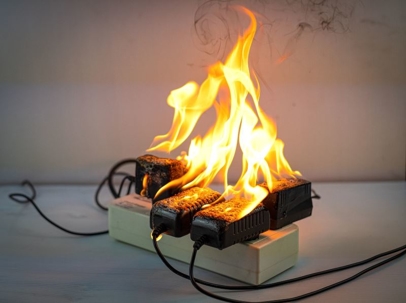Protect Your Family from Electrical Mishaps
It is hard to imagine a life without electricity, but people sometimes forget that their electrical system should be treated with the same respect as one might treat fire – it is useful and can be handled safely, but has the potential to be extremely dangerous. Fortunately, there are several simple guidelines to ensure that you and your family are minimizing the risk as much as possible.
Donandrsquo;t Overload Your Outlets
This is one of the most common problems electricians see. Overloading an outlet is easier than ever with extension cords and power strips, but it is important to remember that these devices add outlets, not power. Check your outlets regularly to ensure that they are cool to the touch and are in proper working order. You should also be certain that you are only plugging one appliance into an outlet at a time.
Check the Wattage
All fixtures and appliances that use lightbulbs have a correct wattage that should be used with that item. Check your lamps and fixtures to make sure that you are at or below the threshold. Light fixtures that have no wattage listed should generally use bulbs that are 60 watts or less. It is important to note that newer LED bulbs consume less power and reduce the risk of overheating, making them a good choice for many applications.
Keep Your Cords Tidy
It is easy to let cords become unruly, especially with entertainment centers and computer stations getting more and more complex as time goes on. However, ensuring that in-use cords are kept neatly out of the way and unused cords are stored gently can make a huge difference in their lifespan, as well as their safety. We recommend taking further precautions with cords if you have pets who may chew on the cords or small children who may play with them. When storing cords, be sure to avoid wrapping them too tightly – you want to ensure that you are not stretching the cord or causing overheating. Finally, be mindful that you are not resting cords on hot surfaces, as this can damage the cordandrsquo;s insulation and wiring.
Repair Or Replace Damaged Cords
When power cords have any kind of damage, they pose a fairly serious safety risk of both electrocution and fires. If you ever notice any signs of fraying or cracking, it is important to replace the damaged cords as quickly as possible. Some of the most common causes of damage include running power cords beneath rugs or furniture, or stapling them to the ground. This can lead to trip hazards, overheating and damage to the insulation.
Unplug When Not In Use
This is one of the simplest: if youandrsquo;re not using it, unplug it! This can save power (after all, just because an appliance is powered off does not mean it is not drawing power) and can protect the appliance from power surges or overheating. While this may seem inconvenient, there is a whole new generation of smart plugs that allows you to schedule when the outlet is active.
Clean Your Exhaust Fans
If an appliance comes equipped with an exhaust fan, it is inevitable that it is going to accumulate dirt and debris over time. This can force the appliance to work harder to accomplish the same task, shortening its lifespan and increasing the risk of overheating. Further, it could be overheating while attached to a tube filled with what is effectively kindling. By ensuring these fans are kept clean, you are making the most of your investment and protecting your home at the same time.
Keep Water Away From Outlets And Devices
It is hardly news that electricity and water are not friendly with each other. To avoid electrical shock, be sure you are keeping electrical equipment dry. Pay special attention to outlets and appliances in kitchens and bathrooms, as well as those near aquariums or plant pots, as they are all at increased risk of coming into contact with water. You should also be careful to only work with electrical appliances with dry hands and tools!
Treat Heating Appliances With Caution
Any appliance that produces heat has the potential to cause problems if not used carefully. Keep these appliances away from combustible things, such as aerosolized products, as well as flammable items like draperies. These appliances should also be situated on stable, heat-proof surfaces to keep them from falling over or damaging the surface.
Allow For Proper Air Circulation
Electrical equipment needs air circulation to keep it from overheating, at which point it could short out and become a fire hazard. Especially for larger appliances like washers and dryers, it is critically important to find out what is required for safe and optimal function.
Follow Instructions
It may be one of the most important pieces of advice, as well as the most straightforward, but reading the instructions on your appliances is hugely important. Doing so can help you better understand how to operate them safely and may even reveal features you wouldnandrsquo;t otherwise know.
If you notice any issues with your electrical system, donandrsquo;t hesitate! Call Valley Heating, Cooling, Electrical and Solar today at (408) 868-5500 and find out how we can help.

